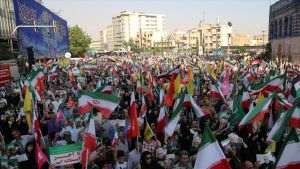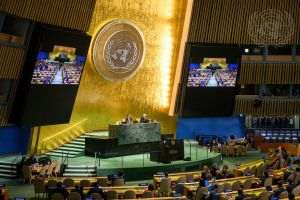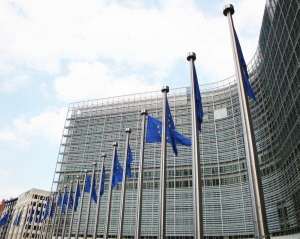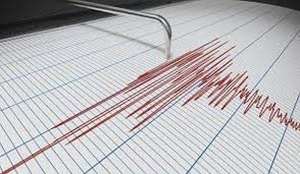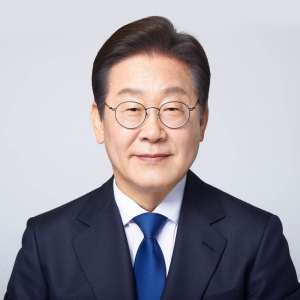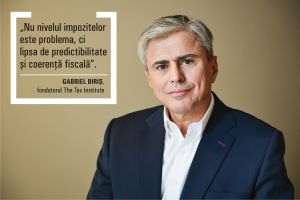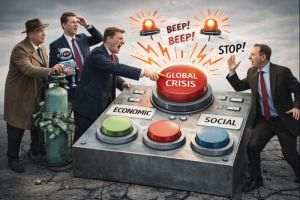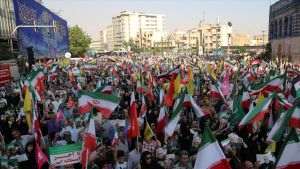In that "made in the US" business landscape, the American guests delivered to the audience powerful messages through their content, which those interested were simply required to get.
First of all, through the participation in the conference, and the mentioning in that context of the Strategic Partnership between Romania and the US, as well as the confirmation of our country's role of "real ally", ambassador Hans Klemm stated that the American side is aware of the shortcomings of the economic side of the relationship between the two countries. As a matter of fact, his participation in that conference was his first interaction, since his arrival in Bucharest, with a different category of interlocutors than Romanian officials.
In his speech, Hans Klemm quoted president Klaus Iohannis twice and mentioned the Romanian government seven times, without mentioning the name of Victor Ponta. Of course, it was to be expected that the relationship with the president would take precedence, but the newly rediscovered weight and the depersonalization of the decision making process at the Victoria Palace can reveal the stance of the US on the Romanian domestic situation and in particular, in relation to the uncertain status of the current prime-minister. The American ambassador subtly distanced himself from the government and the parliament in Bucharest, advising both to "continue reforms which would generate a sustainable development and a full support of the rule of law", avenues of action which are necessary because "Romania must break the cycle of political influence in the decision-making process concerning the economy".
The likelihood of this evaluation being a combination of speculations is low, considering the neutral tone of the new American ambassador and his thorough style of work, which was demonstrated during his speech, when he mentioned that "he had prepared for his term in Bucharest" before his departure from Washington and has continued to study Romania, in the weeks after his effective installation, in terms of its potential for growth, of natural and human resources, of the strategic geographical position and, not least of all, from the point of view of the activity conducted by the Romanian government in its cooperation with the foreign investors.
The closing observations made in the speech by ambassador Hans Klemm were not surprising from the point of view of great, but realistically assessed expectations, which he has from his own term and his personal exactness. Beneath their apparent neutral nature, was noted the incisive pointing out of the problem he is already seeing in Romania's case: he urged the domestic decision-makers to "leave aside the short-sighted political concerns and to focus their attention on the good of the country in the long term". By contrast, he repeated once more the words that were the recurring theme of his speech - "security, democracy and prosperity" - and which he even associated with the "dedicated" collaboration that Romania and the US had within NATO.
Economist Joseph Quinlan was a lot more specific in his speech and he approached two segments: first, the relationship between the US and the European Union, the second, focused on Romania, which was also spurred by the questions that he was asked by the audience.
According to his assessment, the American-European relationship is at a crossroads, which is created by both sides: in the US, there is a major pressure on American companies, which says "come home!", in other words repatriate the activities and the capital invested abroad, so that they create jobs for the American citizens. In this context, the US is entitled to tell Europe "we've been carrying you and we're kind of tired of doing that".
On the other hand, "the relationship between the US and the European Union is now in a structural decline", and the global competition which is currently weighing on it makes the Transatlantic Partnership for Trade and Investments (TTIP) "the last and best chance for these two political-economic areas to keep control over the peaks where the world is ruled over from", in the opinion of Joseph Quinlan. The American economist summarized the issue by saying that "the TTIP has a geostrategic importance, but, if in the end we do not get that treaty, it won't be the end of the world".
Concerning Romania, Joseph Quinlan insisted that the two vital ingredients for making Romania attractive for foreign investments and more competitive are "the development of the infrastructure and keeping the human capital in the country". According to his blunt expression, in order to encourage business, "at least fix simple things, such as the time it takes to get connected to the power grid!", which is bigger than in the African countries, as exemplified by the American economist. It is impossible not to notice that this is the recurring message that many foreigners have sent our country: ambassadors, representatives of various business sectors, universities and other academic foreign institutions have been repeating the same criticism, concerning the slow evolution of infrastructure and the inefficient use of human resources.
Through the advanced recommendations made to Romania, he has implicitly pointed out the very essential shortcomings of the country management performed by the Romanian authorities: "increase the efficiency of public spending on infrastructure" - in other words "stop wasteful spending on the building of highways, national roads etc., which lead to faulty workmanship", as well as "increase your presence in the valuable circuits of the world" - which can be taken to mean "leave anonymity, make yourselves known for what you have valuable". The American economist also indicated Romania's position on the world's economic-financial map, saying: "the lack of adequate infrastructure is a huge obstacle when it comes to the flow of capital and merchandise".
In the end, Joseph Quinlan advised Romania to follow the example of the American entrepreneurial culture, whose motto is "we are not afraid to fail", a message which isn't seen in the business mentality in the European Union.

